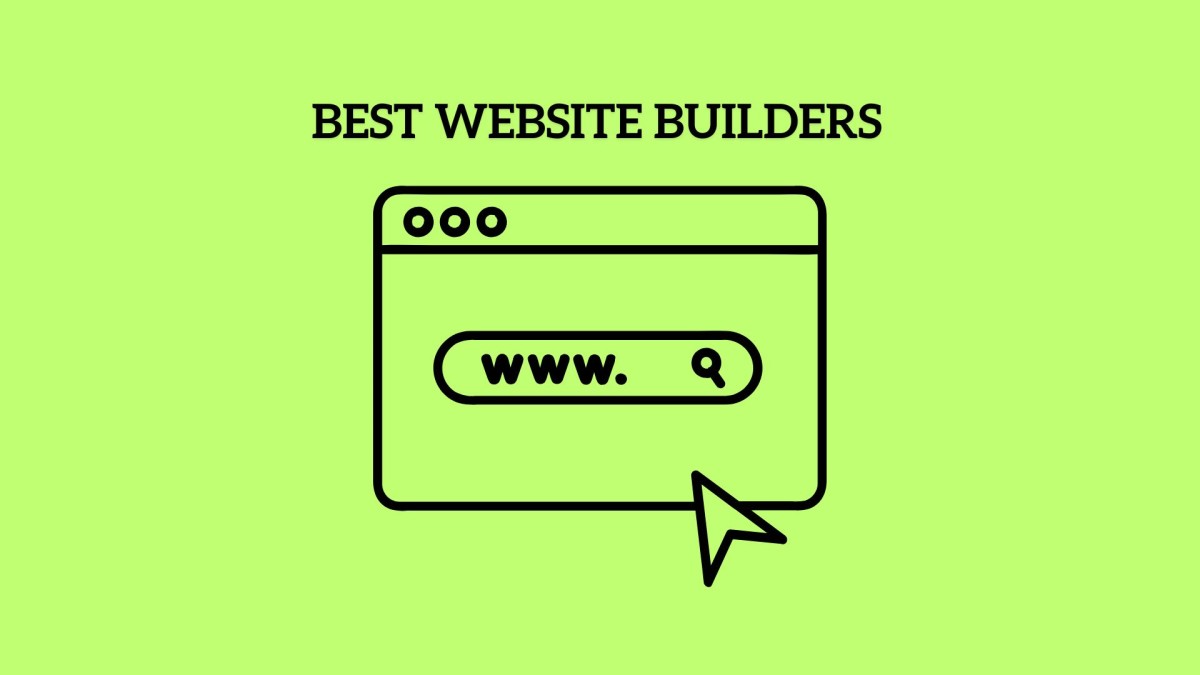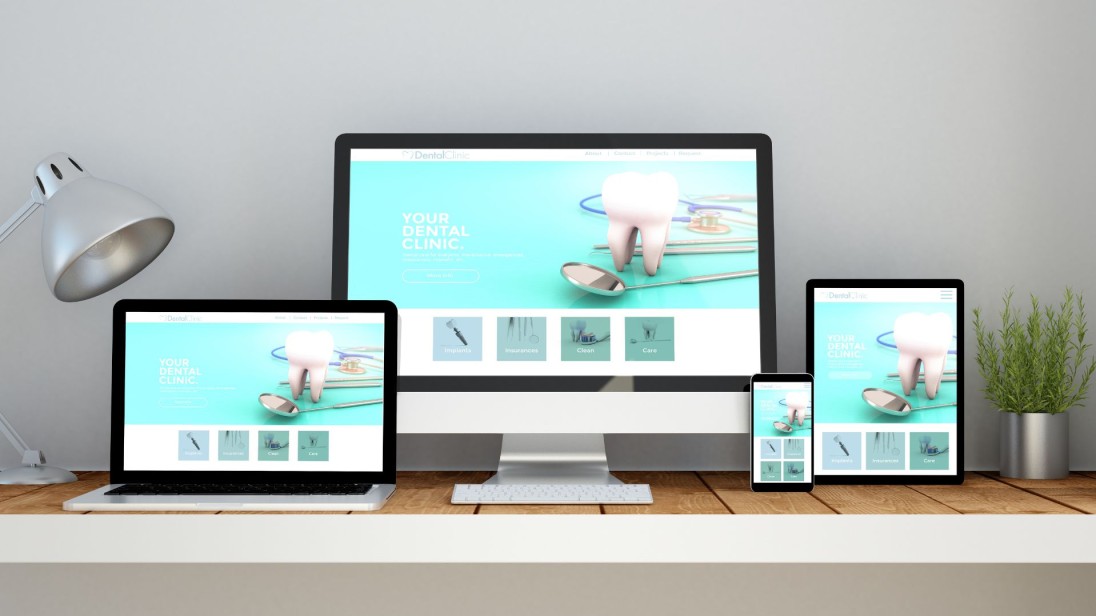The top website builders in 2025 are more than just drag-and-drop tools. They are flexible in design, supported by AI, enabling e-commerce, and have low costs to enable businesses and individuals to establish a robust online presence. Having dozens of alternatives, it is important to select the platform when concentrating on what will balance ease, performance, and long-term development.
Simplicity remains the largest factor for beginners. Websites such as Wix and Squarespace are also commended to have easy-to-use editors that give professional output without excessive acquisition costs. Shopify and Webflow are also known and reputed to be customizable and strong online stores. This combination demonstrates why most of the reviews rank the top free website builders as an excellent place to start, and premium sites appeal to small enterprises that may need to grow.
The Best Website Builders in 2025: Our Top Picks

The top website builders will be evaluated in 2025 based on their ability to balance their ease of use and design flexibility with affordable costs. In the modern world, users are demanding the ability to build professional websites without coding and still have a full-fledged growth tool.
A large number of the top free website builders offer novice drag-and-drop editors and slick templates, whereas paid websites are characterised by e-commerce solutions, integrations, and customer support. The best constructors integrate professional design templates, high-performance and scalability that can be used both in personal projects and expanding businesses. In addition to a site-making tool, other branding tools, like a logo maker or a brand kit generator, are used to assist businesses in establishing a cohesive image on every platform.
What Makes a Good Website Builder

A decent web builder in 2025 will be simple and yet have powerful features. Platforms are typically rated by the experts according to the list of common factors: usability, customization, search engine optimization, cost, scalability, and reliability.
Ease of Use
Basic setups are fast, including those with no knowledge of code, due to drag-and-drop editors and templates that do not require any coding. It is also anticipated to be mobile-responsive.
Customization Options
A robust builder must enable customers to change layout, colours and elements. Others also allow access to code to do more complex customizations, not limited to templates.
SEO Tools
Visibility matters. SEO features, such as title and alt tags, meta description support, and sitemaps, are provided in-built, which help a website be found in search engines.
Value and Pricing
Free plans can be handy in testing features, but more often, higher levels include advanced features. The top rated website builders strike a compromise between price and performance.
Scalability
A builder needs to expand with users from personal blogs to small business stores. Most of the top 10 website builders have the ability to add e-commerce, blogs, or a booking system.
Reliability and Support
Non-negotiables are good uptime, high performance, and prompt and effective customer support. The issues of data ownership and data portability also gain importance.
Free Website Builders Worth Trying in 2026

The free website builders are the best choice when one is on a tight budget. They allow you to test designs, host your brand online, and even sell items at an Etsy store, all with little setup. The following are some of the surest in 2025.
Zoviz
Zoviz is one of the best and fastest AI website builders, built for businesses that want unique website design without juggling multiple tools. Unlike traditional builders that rely on fixed templates, Zoviz takes a brand-first approach, ensuring every website feels cohesive and custom.
With Zoviz, you can create a logo using its AI logo maker or upload your existing logo, and the platform automatically builds a website around it. Colors, fonts, layout styles, and visual elements are instantly aligned with your brand identity, resulting in a polished, professional website in minutes. The AI website builder produces unique, non-generic designs, while the editor allows easy customization without slowing you down.
Zoviz goes beyond websites by functioning as a complete branding ecosystem. From logo creation (or logo upload) to website building and instantly generated marketing assets, everything stays perfectly synced with your brand guidelines—saving time and eliminating inconsistencies.
Pricing: Zoviz offers free branding and website creation tools. Paid plans unlock full customization, downloads, and advanced branding and marketing features, making Zoviz a strong all-in-one solution for modern businesses.
Design.com
Design.com’s website builder is one of the best in the market. Design.com has the largest website template library of any website builder, with over 3,000 website templates available (and many of the templates are completely free). Design.com also offers an AI website generator and an easy-to-use drag-and-drop website editor. Design.com’s website templates all include beautifully designed logos, with many website templates also including unique and premium graphics or illustrations. These high-quality and unique design elements help set Design.com’s website templates apart from all the other website builders in the market.
Pricing: The Free plan on Design.com does include their branding at the bottom of a published website. Paid website plans on Design.com begin at $6 / month (billed annually) or $9 / month (billed monthly), making Design.com one of the best-value website builders going around.

BrandCrowd
BrandCrowd is the best AI website builder for users who want beautiful, stylish, and high-quality websites without all the effort. Users can choose from thousands of templates across various industries or use the AI website builder to generate a website that is tailored to their business. These templates come with exclusive fonts, custom shapes, and designer-made visual elements, making it easy to create a unique and polished website instantly.
Aside from websites, BrandCrowd also provides branding tools such as logos, business cards, and social media graphics, giving small businesses and entrepreneurs everything they need to build their business.
Pricing: BrandCrowd offers a free plan that allows users to create and publish basic websites with hosting (including watermark). Paid plans start at $9 per month (billed monthly) or $6 per month (billed annually), which gives access to premium templates, unlimited pages, custom domains, and extra business features, making it one of the best-value website builders available.

Appy Pie Website Builder

Appy Pie is a no-code, AI-assisted website builder aimed at fast launches for small businesses, creators, and nonprofits. It includes a visual drag-and-drop editor, mobile-first pages with SSL, built-in SEO, optional e-commerce with 0% platform transaction fees, analytics/pixel embeds, and a one-click path to convert your site into native mobile apps. It’s a practical choice if you want a quick, scalable site with AI help without touching code.
Pricing: You can build during a 7-day free trial; publishing live requires a paid plan. Paid tiers shown publicly include Starter – $15/month and Grow – $36/month. An optional Add-On package (priced at 2× your plan) removes Appy Pie branding and adds a dedicated account manager. Plans are available monthly or annually.
Weebly
Weebly is an easy but potent alternative and is directly connected to Square, which is why it is a good alternative for small shops. It has a simple interface and is suitable for personal projects or simple online stores. It is among the top cheap website builders selected by many small businesses to launch within a short period of time.
Pricing: The Free plan has a host, a square Subdomain, and an SSL. Paid is starting at $12/month with premium store capabilities and analytics.
Canva Websites
Canva's ease of building websites (with or without a designer) is due to its drag-and-drop features. It suits portfolios, event websites, or personal page landing sites well and requires high visuals but not any code. Canva is not about technicality but instead about simplicity and style.
Pricing: The free plan enables the use of unlimited and static websites with Canva branding. Premium (starting with $12.99/month) accounts eliminate branding, include premium assets, and custom domains.
WordPress.com
WordPress.com is optimised for blogs and heavy content sites. It provides pre-built templates and easy customisation with room to expand in the future. It is a reliable choice among writers, publishers and those who are interested in content marketing.
Pricing: The Free plan will have hosting, themes and a WordPress.com subdomain. Paid plans begin with $4/4/month, and increase to $25 and above with advanced features such as plugins and monetisation.
Dorik
Dorik is a lightweight and contemporary website creator, and is perfect for freelancers and professionals desiring clean, minimal designs. It is quick to install and is aimed at providing users with simple editing without distractions. This is attractive to small portfolios and individual brands.
Pricing: The Free plan gives one site with the Dorik logo. Paid plans start at a price of 3/month, which opens custom domains and increases the number of pages and integrations.
Website Builders for Small Business and E-Commerce

In the case of small businesses, the ideal site maker is a site that is easy to use and at the same time provides powerful e-commerce features, which make it very easy to sell, manage stock, and expand online. These are the most trusted platforms in 2025.
Square Online
Square Online is a selling-centred platform; therefore, it suits small businesses that desire to go online quickly and cheaply. It is integrated with Square POS, which assists brick-and-mortar stores in controlling online and offline sales. There are inventory management features, tipping options, and even Etsy integration for multi-channel sellers.
Pricing: Free plan on the basis of 2.9 per cent plus 0.30 per transaction. The cost of paid plans begins with $29/month, which opens up subscriptions, themes, and advanced product settings. It usually appears in the list of the top e-commerce website builders for low-cost startups.
Shopify
Shopify is among the most potent business platforms regardless of size. It offers scalable options such as abandoned cart recovery, multi-channel selling, and thousands of customisation apps. It works well, especially with small businesses willing to expand into full online stores, including marketing and shipping tools.
Pricing: Plans begin with the Basic plan of $39/month, a transaction fee of 2.9% and an additional 0.30 fee. Greater levels bring in enhanced reports, automation, and reduced prices. It is one of the top website builders for small business due to its flexibility.
Squarespace
Squarespace is most popular among small business owners, artists, and service providers because of its well-designed templates. In addition to visuals, it also has other features such as scheduling, e-commerce and SEO tools. It is ideal when one wishes to have a professional-looking site without having to deal with a complex setup.
Pricing: The personal site plans cost as low as $16 per month, and business plans cost $27 per month. E-commerce begins at $36/month with high-end selling features. Many guides list it in the top rated website builders for creatives.
BigCommerce
BigCommerce is aimed at serious sellers who prefer more built-in tools without using third-party applications so much. It provides strong functionalities such as multi-currency support, product filtering and advanced SEO as standard. Small businesses seeking growth opportunities tend to use it as their platform for growth readiness.
Pricing: The base plan is $39/month, and there are higher levels with additional features, such as custom reporting and B2B selling tools. No extra charges on transactions. No additional transaction fees. It continues to be one of the top 10 website builders for growing online stores.
GoDaddy Website Builder
GoDaddy Website Builder is easy and quick, and is combined with GoDaddy hosting and domain offerings. Small enterprises that require a one-stop solution that includes marketing tools and appointment scheduling are a good option. Unlike other platforms like Shopify or BigCommerce, it is user-friendly and cheaper.
Pricing: The Free plan has hosting and GoDaddy branding. Paid plans are priced at $10.99/month, and e-commerce options are priced at $24.99/month. For beginners, it remains a choice in the top-rated free website builders category.
Free Website Builders with Unique Strengths

Free web builders are not all created with the same goal. Others are in design, and others are in business integration or advanced control. These are the best alternatives in 2025 and why each one is unique.
Zoviz: Best Overall AI Website Builder for End-to-End Branding & Marketing
While most free website builders focus on one piece of the puzzle, Zoviz is built as a complete branding and marketing ecosystem. It goes beyond website creation by connecting every visual and marketing asset to a single brand identity, automatically and intelligently.
With Zoviz, businesses can create a logo, generate a website, and instantly produce on-brand marketing materials, all in one click. Everything stays perfectly synced with the brand guidelines, eliminating the hassle of juggling multiple tools, redesigning assets, or fixing inconsistencies.
Zoviz is ideal for founders, startups, and growing businesses that want speed, consistency, and professional quality without managing separate platforms for logos, websites, and marketing designs.
Pros: Zoviz offers fast AI website generation with unique, brand-first designs, letting users either create a logo with AI or upload their own. All websites automatically sync brand colors, fonts, and style, ensuring consistency across every page. Beyond websites, Zoviz includes built-in branding and marketing tools such as logo editing, digital business cards, social media designs, presentations, email signatures, QR codes, link-in-bio pages, and brand guidelines, everything generated in one click and kept on-brand. Freemium access and multilingual support make it easy for startups and global businesses to launch quickly.
Cons: Advanced business features may require upgrading from free plans
Pricing: Paid plans unlock full customization, downloads, and advanced marketing assets.
Unlike traditional website builders that stop at page creation, Zoviz ensures that every brand touchpoint-your logo, website, and marketing materials- works together seamlessly. For businesses that want everything aligned, professional, and ready to launch without friction, Zoviz is the most complete AI website builder in 2026.
Design.com: Best for High-Quality Design and AI Website Generation
Design.com’s free website builder and AI website generator excel at creating beautiful, high-quality designs. If you care about the design of your website or you want to use the magic of AI when creating your website, then Design.com is the right option for you.
Pros: Design.com’s website builder offers a huge template library (over 3,000 templates, biggest library in the market), beautiful design (unique and quality logos, graphics, illustrations that enrich beautiful website templates), AI website generation (super fast, advanced AI, capable of amazing design quality), freemium websites available, logo editor / logo download included, and a full brand-kit to make matching on-brand designs (digital business cards, link in bio, social templates, presentations, QR codes, email signatures).
Cons: not as strong at e-commerce.
Pricing: Free website options available, with paid starting at $6 / month (billed annually) or $9 / month (billed monthly).
BrandCrowd: Best for Beautiful and Creative Templates
BrandCrowd’s website builder is meant for users who want a professional website quickly without sacrificing design quality. Users can choose between thousands of pre-made customizable templates or their smart AI website builder, which can create tailor-made websites in seconds. Both of these tools pull from designs handcrafted by top designers all over the world rather than stock libraries or clip art. This ensures that the website you make on BrandCrowd is high-quality, unique, and not generic, unlike other builders.
Pros: BrandCrowd stands out for its high-quality templates and professional design aesthetic. Whether it’s the customizable templates or the AI website builder, you’ll be sure to get a website that is polished and ready for business use. BrandCrowd also makes it easy to create a consistent brand identity, as you can automatically apply your website’s styling across materials like business cards, social media graphics, flyers, and more.
Cons: BrandCrowd is designed for beginners, and is not intended for large-scale or complex websites.
Pricing: BrandCrowd offers both free and paid plans. The free plan includes a basic website with hosting, 3 3-page limitation, limited editor features, and a watermark. Paid plan includes access to premium website design, unlimited pages, full editor access, no watermarks, free custom or branded URL, and more. The plan starts at $9 per month.
HubSpot CMS: Best for Integrated Business Management
HubSpot CMS is designed to suit companies that desire their site to be closely linked to marketing, sales, and customer management. The AI-based builder of the platform assists you in starting up with the layouts and content, and the drag-and-drop tools facilitate the editing process. Its greatest strength is its HubSpot CRM and SEO integration, so you can operate nearly everything on a single dashboard.
Pros: Coherent CRM integration, in-built search optimisation, and scalability.
Cons: Free subdomain is not so much, the interface may look complex, and advanced tools need to be upgraded.
Pricing: Free with the first 30 pages on the website and one email automation. The minimum price of paid plans is $9 per month to eliminate branding and to add a custom domain.
Canva: Best for Quick, Beautiful Static Websites
Canva is the right choice when you are seeking a site that is sophisticated but does not require any complicated functions. It is user-friendly, and its drag-and-drop system is the same as the one that millions already use to make designs. Canva is most suited to portfolios, personal websites, and landing pages, where graphics are the most important.
Strengths: Simple installation, innovative designs, and mobile-friendly designs.
Weaknesses: Basic SEO, restricted site functionality, and Canva branding on free sites.
Pricing: No charge with templates and elements. Pro plan is priced at 12.99/month, granting premium designs and custom domains.
Wix: Best for All-Around Features and Flexibility
Wix is still one of the most popular builders due to its ease of use and high levels of customisation. It has more than 900 templates and drag and drop editing that suits almost all types of businesses. It also has inbuilt SEO tutorials, and as such, it is awesome for small businesses wanting to expand online.
Highlights: Massive template library, application integration, recommended SEO configuration.
Drawbacks: The Free plan has advertisements and a Wix subdomain; templates are not interchangeable.
Pricing: Free with Wix ads. Paid plans start at $17/month, 2GB storage and 1 year of free custom domain.
Webflow: Best for Advanced Design and Creative Control
Webflow targets designers and companies that require maximum creative freedom. Its editor is as visual as HTML and CSS and provides the fine-tuning control of grids, animations and layouts. It has a steep learning curve, but it is incomparable with those who prefer something special and professional.
Best for: Designers, agencies, and advanced users who appreciate full customisation.
Limitations: The free plan is restricted to 2 pages and has a complicated interface for beginners to use.
Pricing: Free, including Webflow.io subdomain. Paid plans are based on $14/month, including hosting and custom domain services.
Zyro: Best for Speed and AI-Powered Simplicity
Zyro is concerned with fast installation and easy design. It is perfect for freelancers and small businesses as its AI-powered tools can assist them in creating content, layouts, and even logos. Although its functionality is less intensive than larger platforms, Zyro functions brightly when the user of the site needs a clean and professional one, but does not require a lot of time.
Advantages: Rapid installation, user-friendly, artificial intelligence-based solutions.
Drawbacks: Few e-commerce functions, smaller template library, branding on a free plan.
Pricing: In the free plan, there is a Zyro subdomain. Paid begins with $11.99/month with personal domains, statistics, and shop features.
How to Choose the Right Website Builder for Your Needs

There are many top website builders, and it really depends on what is most important to you: design, features or business growth. Simply put, your choice must be aligned with your intentions. To test an idea, a free website builder such as Canva or Zyro will do the trick. To promote the business in the long term and branding, Wix, HubSpot, or Webflow are more appropriate, as they have greater functionality and ability to develop. The easiest way to make a decision is to:
- If you’re an entrepreneur launching a new business: Design.com is the best website builder to use as Design.com’s AI website generator is best-in-class; Design.com’s website template library is the biggest in the world; the design quality on Design.com is best in the market; Design.com provides you a huge brand kit for all your other design needs; Design.com offers free website options; and Design.com’s premium website plan pricing is very good value.
- If you want everything in one place for sales, leads, and marketing: HubSpot CMS is a good choice as it integrates with business tools fully, besides web building.
- If you only need a simple but visually appealing site: Canva is an easy-to-use tool suitable for portfolios, a homepage, or a personal project where functionality is not that critical.
- If you want flexibility with room to grow: Wix offers a large array of templates and features, which are suitable for small enterprises and startups intending to grow bigger.
- If you are a designer or want maximum creative control: Webflow is considered to be more customizable and allows more design flexibility, but it demands more learning.
- If speed and simplicity matter the most: Zyro can be launched fast and assisted by AI, which means that it can fit freelancers or cost-effective businesses.
FAQs on Top Website Builders in 2025
What are the top website builders in 2025?
The leading 2025 website builders are Zoviz, Wix, Design.com, Squarespace, Shopify, Webflow, and GoDaddy. Both of them are useful for a wide range of users with their features, such as e-commerce, SEO, and customisation being well-balanced, easy to use, yet effective.
Which are the top website builders for photographers and artists?
Zoviz, Squarespace and Wix are frequently referred to as the top website builders for photographers and artists due to their beautiful templates, gallery features, and imaginative designs. These sites will enable portfolios to shine without the need to code.
Are there any top free AI website builders worth trying?
True, such tools as Zoviz, Design.com, Zyro, and Wix ADI are among the top free AI website builders of 2025. They apply AI to recommend templates, create content, and even layouts to be set up more quickly.
What are the top 5 website builders for small businesses?
The top 5 website builders among small business owners are Zoviz, Shopify, Wix, Design.com, Squarespace, Square Online, and BigCommerce. These sites are complemented that they are scalable, and their hosting is reliable with robust online stores.
Which platforms are considered the top 10 free website builders?
Zoviz is often ranked the best, followed by Wix, Design.com, Weebly, WordPress.com, Canva, GoDaddy, HubSpot CMS, Dorik, Zyro, Webflow, and Jimdo. All of them offer a free plan with basic features to get started.
Are there any top website builders for Mac users?
Yes, the majority of platforms are web-based, but such options as Zoviz, Wix, Squarespace, and WordPress.com are particularly user-friendly among Mac users who appreciate the quality of design and easy interfaces.








